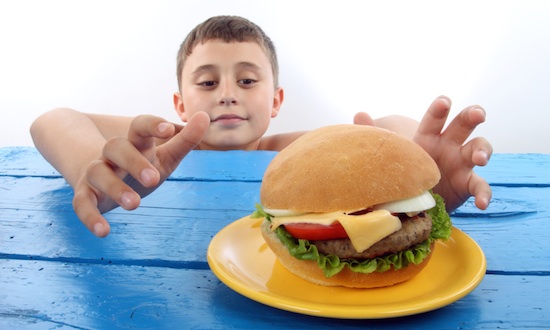Childhood Obesity: America’s Kids are Getting Fatter
September 4, 2013
It’s a fact – America’s kids are gaining weight right along with the adult population. In the past 30 years, childhood obesity has more than doubled in children, and even scarier, more than tripled in teens. More than one-third of our young population is overweight and/or obese.
What is the difference between overweight and obese? The answer is linked to body fat and muscle. The definition of obesity is having excess body fat, whereas you are considered overweight if you have excess weight for your height. There is no one factor that is considered when defining overweight. Factors can include things such as bone, fat, and/or water. Regardless of whether someone is considered overweight or obese, bottom line is that there is a caloric imbalance going on – more calories are ingested than are expended.
The frightening truth about childhood obesity is it will lead to health problems. Diabetes, Hypertension, high cholesterol and cardiovascular disease are some of the health issues that are regularly faced by the overweight and obese. These can be life threatening, even in young children.
What are some of the reasons our children are becoming obese?
- Lack of exercise. Again, more calories without more calorie expenditure results in weight gain.
- Diet. When high calorie, processed food is chosen, the calories add up quickly, resulting in weight gain.
- Economic Factors. The sad truth is that processed foods are cheaper, and families can’t afford the cost of fresh produce and other good food choices due to cost.
- Psychological Issues. Food can become a coping mechanism when household stress is high, or boredom sets in.
- Family History. When the parents are overweight or obese, a child is far more likely to become overweight as well. The kids tend to model the parents’ behaviors and choose high-calorie food and a sedentary lifestyle.
- Television and Video Games. Children that watch a lot of TV, play on the computer, or play video games aren’t burning the calories like their active counterparts.
So what can be done? How do we fight this silent epidemic? As a parent, you can do many things. First, realize there is a problem. Make an appointment with your child’s doctor. Have a physical examination done to be sure your child is healthy enough for increased activity. Once given the all clear, it’s time to make some changes! Change is difficult for all of us, kids included, so be prepared for some reluctance and backlash. Don’t give in to whining and cajoling – your child’s health and well-being are at stake.
Items you can change include:
- Limit the amount of sugar your child eats
- Limit the amount of fats in your child’s diet, and become aware of which type of fats are being consumed, and try to stick with unsaturated fats.
- Make healthier food choices. Adding beans whole grains and nuts is a great start, and increase the amount of fresh produce in the diet. Produce can be expensive – look for marked down produce that is still good, check out local farmer’s markets, and grow your own! Include your child in planting and caring for a small garden. It doesn’t have to be large. If you have no yard, plant a few plants in pots and enjoy some fresh tomatoes, cucumbers and other vegetables.
Yes, changing your lifestyle can be challenging to say the least, but it can be done, and it can be even be fun with a little effort. Make the changes a family project, get the kids involved in ideas. They can help tend the garden, go for family walks, come up with exercise ideas for the entire family. Let them help choose recipes that sound good – then get them to help cook it!
Limit TV and video game time, and keep your kids moving. Find pleasure in doing things together, play outside games, do walking tours of your community, ride bikes together. Anything to get up off the couch and become active. The entire family well benefit, both physically and emotionally. You’ll become closer, and enjoy family time. Start fighting this terrible epidemic right in your home, and your children will become healthy adults.





